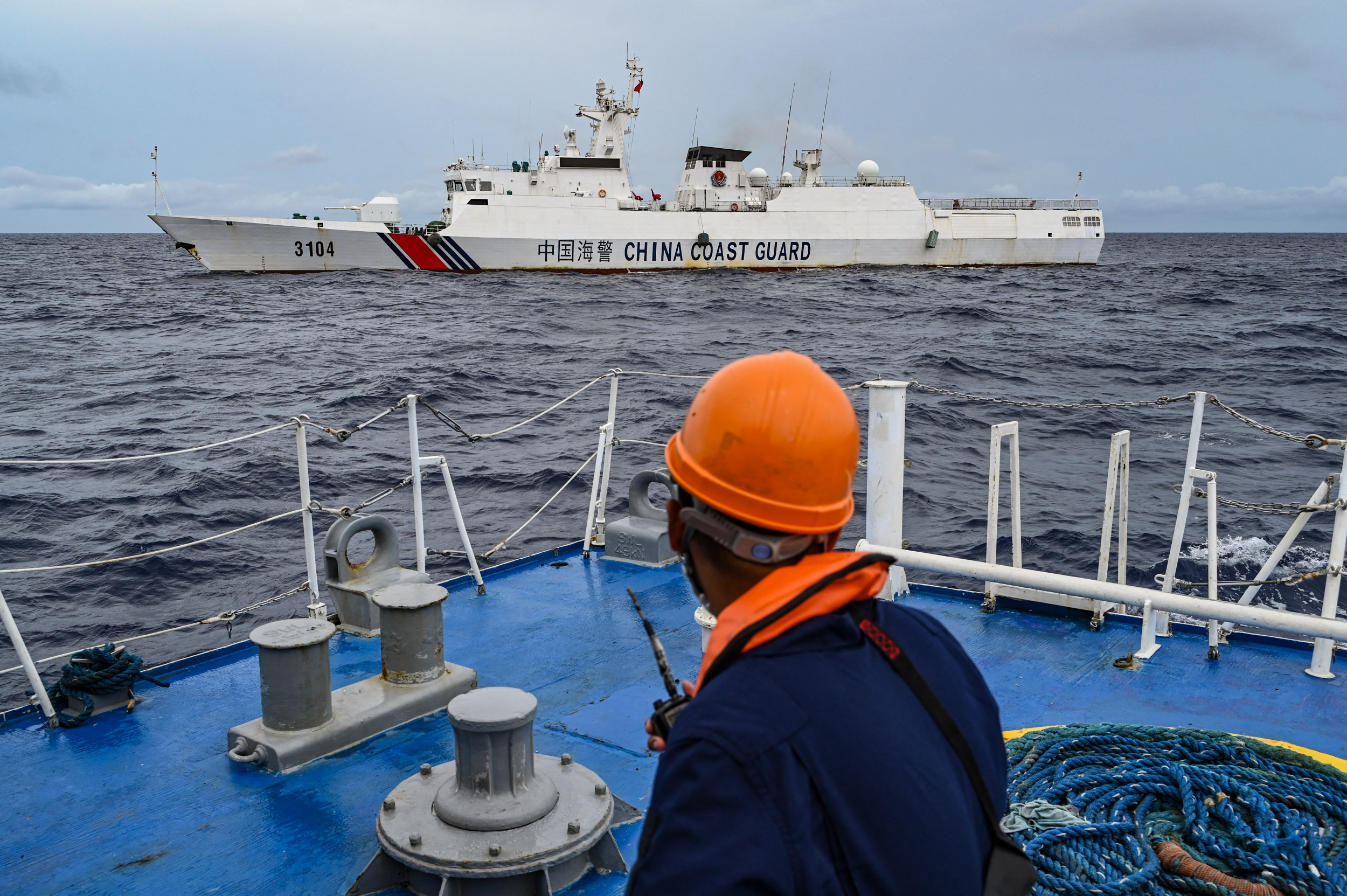World
China Gaslights the World About Its Aggression in South China Sea | Opinion

On Aug. 25, a ship from the Philippines’ Bureau of Fisheries and Aquatic Resources, the BRP Datu Sanday, set sail from the island of Palawan to resupply Filipino fishermen stranded near Sabina Shoal, a nearby atoll in the South China Sea. Unfortunately, the Datu Sanday never arrived. The reason? An armada of naval, coast guard, and maritime militia ships from the People’s Republic of China (PRC) was blocking its way.
The fact that Sabina Shoal is located well within the Philippines’ internationally recognized exclusive economic zone did not deter the Chinese Communist Party (CCP) from ordering its ships to block the Datu Sanday, falsely claiming the Filipino ship was “intruding” into sovereign PRC waters. After it continued its mission, footage captured by the Philippines showed one of China’s coast guard ships ramming the Datu Sanday’s hull, seriously damaging the ship and causing its engine to fail.
Unfortunately, the CCP’s aggression in the South China Sea encapsulates a broader worldview, one in which might makes right and Beijing does as it pleases, including ramming ships belonging to its smaller neighbors that dare to challenge its sweeping—and illegal—sovereignty claims.
JAM STA ROSA/AFP via Getty Images
If anyone has the temerity to call it out for its aggressive and illegal actions, the CCP simply gaslights them. After the Philippines released its footage clearly showing China’s coast guard ramming into the stern of the Datu Sanday, Beijing bizarrely claimed that the Philippines had “deliberately approached and rammed” its ship.
This gaslighting and disregard for international law is nothing new. After an international court ruled in 2016 that the CCP’s so-called “nine-dash line” sovereignty claims over almost the entire South China Sea had “no legal basis,” Beijing infamously declared the court’s ruling to be “null and void” and amount to “nothing more than a piece of paper.”
Nor is the CCP’s disregard for its neighbors’ sovereign rights a recent development. In 2010, years before the rise of current top leader Xi Jinping, the PRC’s foreign minister made clear to a summit of Southeast Asian countries their place in the CCP’s vision for a new global pecking order. “China is a big country, and other countries are small countries,” the top diplomat warned.
For anyone familiar with the Melian Dialogue between ancient Athens and Melos, one of Athens’ smaller neighboring city-states, the implication of this language was clear: in the world according to the CCP, just as Athens told Melos, “The strong do what they can, and the weak suffer what they must.”
For the CCP, this worldview means bullying its smaller neighbors at will and then lying about it.
It means stating at the White House that China “does not intend to pursue militarization” of the South China Sea and then building a slew of military bases in its neighbors’ exclusive economic zones, including several that are similar or larger in size than the U.S. base at Pearl Harbor.
It means claiming to pursue a “peaceful” settlement of differences with Taiwan and then escalating its use of military and economic coercion in an attempt to intimidate the democratic, self-governing island into submission under the PRC’s rule.
And it means Xi claiming that China has “fully fulfilled the commitments it made” when it entered the World Trade Organization and then violating every rule of international trade in the book, including dumping artificially underpriced goods into the U.S. market, evading customs duties, and stealing hundreds of billions’ worth of U.S. intellectual property.
For decades, the CCP has gaslighted the world about its aggressive actions and intention to drag the world back into an earlier era where rights were not guaranteed by law but arbitrarily granted—and revoked—by autocrats.
Today, we must firmly and persistently call out the CCP for its aggression and untruths, from the South China Sea and Taiwan to technology and trade. Alongside our allies and partners, we have made incredible sacrifices to put that earlier era of history behind us. And we cannot allow the world to ever go back.
Raja Krishnamoorthi (D-Ill.) is the ranking member of the House Select Committee on the Strategic Competition Between the United States and the Chinese Communist Party.
The views expressed in this article are the writer’s own.










